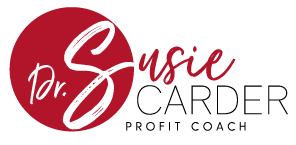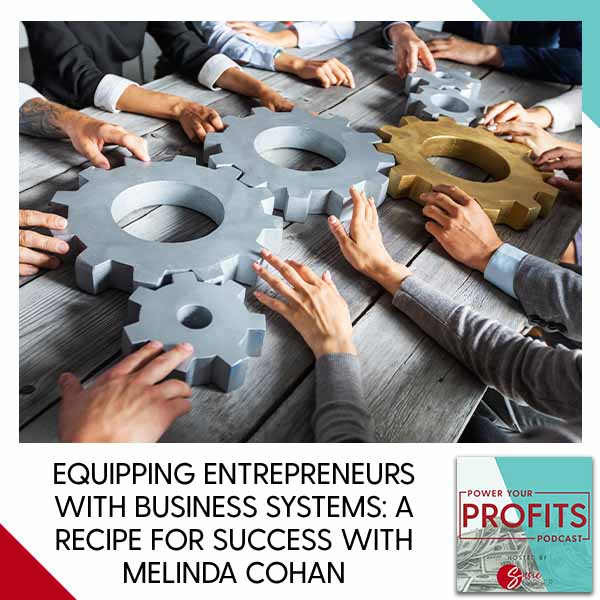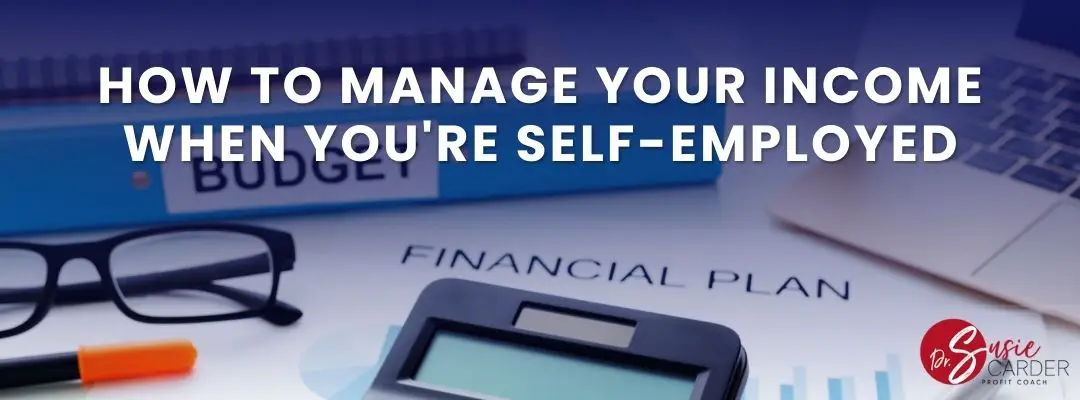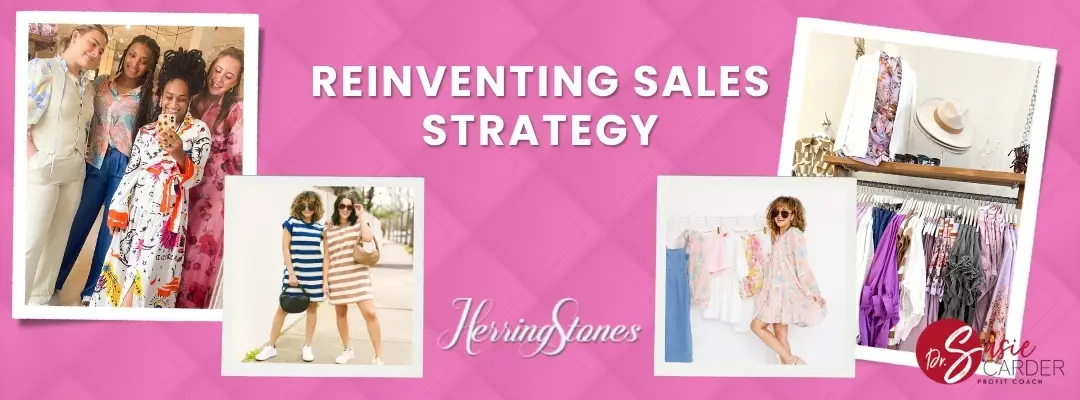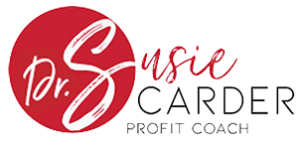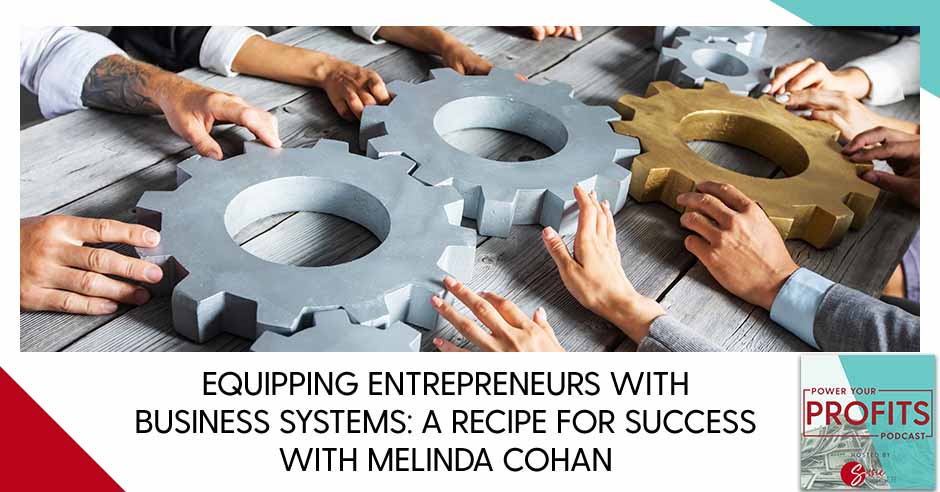
One thing many entrepreneurs forget when creating their business is the importance of having a good, efficient business system. The lack of great business systems can hamper your growth and stifle success. Luckily, Melinda Cohan is here to help as she discusses the whys and hows with host Susie Carder. As the CEO of Coaches Console, Melinda knows how to create profitable and sustainable businesses, and she shares how. Tune in and learn more.
—
Watch the episode here
Listen to the podcast here
Equipping Entrepreneurs With Business Systems: A Recipe For Success With Melinda Cohan
Melinda Cohan is our guest. She’s the CEO of Coaches Console, a software training and development company that has helped thousands of coaches create a profitable and sustainable business. Since 2004, she helped more than 50,000 coaches start their coaching businesses with confidence, look professional and stay organized from day one and how to serve clients better.
The heart of Coaches Console is their technology, a web-based platform that facilitates all tasks necessary to start managing and automating your business. Her system is designed for startup coaches that don’t have any experience setting up business systems or interest in spending time learning how to do those administrative activities.
While their platform is great by itself, we put coaches first and foremost. She knows what it takes for a good coach to accelerate. That’s why they offer coaching programs, private coaching guides and they work with a seven best-practice roadmap for efficient business setup and long-term success. With the help of a dedicated coach, you can find your first or next clients, hone on your marketing strategy, automate all that administrative task, all that follow-up stuff, learn how to scale your business, serve more clients and earn what you are worth. Please welcome my guest, Melinda.
—
My guest is Melinda Cohan. She’s the CEO of the Coaches Console. I have her book, which is amazing and we’re going to talk about it. We’re going to talk about what she does in the world and her greatness because I’m only bringing you the great people who are playing big in the world. Melinda, thank you for coming and for being here. We appreciate you. I’m so excited that you’re here.
Thank you. I’m excited to be here with you too.
Why don’t you share with people what your magic is? What is your business? What do you do? How do you do it? What makes you a rockstar?
I’ll share a little bit about what I do and then I love the way you asked that, “What is your magic?” For years I’ve been helping coaches and service-based entrepreneurs get their business organized behind the scenes so that they can feel confident about what they’re doing in the world and feel calm about putting themselves out there.
Through a software, I created through our training, coaching, tech support and all that stuff. We make business easy because a lot of coaches and entrepreneurs out there, they’re great at the thing they do. They suck at business. That’s where we come in. I geek out on efficiency systems and processes. I love having a sexy backend so it can be streamlined and be working for me. I don’t have to waste all my time doing all the admin burdens and distractions. They got to be done but we want to work smart about it. That’s what I do. I’ve been doing it for years.
You’re singing my words of praise. This is a strategy. People hate it but once you get it in place, you feel in love with it. Tell everybody what your software does because when people hear software, they get scared. That’s my experience. When you have your systems, they think it immediately then they’ll think of processes then you say software and they’re like, “That’s not for me.”

The software I created is the Coaches Console. One of the things about coaches is they have a special place in my heart because that’s the background that I come from. Any service-based entrepreneur, consultant, trainers, speakers and practitioners, when it comes to our business, we have to be able to leverage technology but those service-oriented professions don’t operate out of the same side of the brain as systems and technology.
We have to leverage it or you’re going to have a hobby. You’re going to put a cap on your business pretty quickly. You’re not going to be able to grow and be able to provide service that gets results for your people. You’re not going to be able to deliver on what you promised so you have to leverage technology.
Most entrepreneurs love the thing that they do so much that they are like, “How can I do this thing more? Let me find people so I can coach and do this thing.” They’re getting clients and that leaves them in this, “Now I’ve got to figure this out.” The next thing they know, they have about, on average at nine different technologies behind the scenes, running the show and they don’t like technology to begin with. That’s why I created Coaches Console all those years ago to everything you need behind the scenes, have it in one platform. It’s all talking to each other and you don’t have to figure out how to do it. That’s why I created that because I know people don’t like technology but you got to use it.
I love it now. I had to learn myself. Is that how you went from an idea to a multimillion-dollar business?
It is. I started out being a coach. I got fired from my job. I had been doing coaching as a hobby because it’s how I show up and work with people. When I got fired, the control freak in me said, “Nobody’s going to be in charge of my future like that. I will have my own business. I did not want to be my own business or be an entrepreneur. That was not me.”
I started my business was happy coaching and then I heard a calling and this voice. I knew enough that when I hear those voices, I pay attention. I grabbed a napkin out of my glove box, started writing down the bits and pieces of what I heard and didn’t make much sense at the time but I kept paying attention and realized I was having a lot of success in my business because of the systems and the backend were organized. I felt confident to put myself out there. I didn’t like networking but I did it because I knew I could handle whatever came my way.
I love that you say that you didn’t like networking. People think we love doing that.
I’m an introvert. That was not my gig.
It’s important that people know that because they think, “Me too, I’m a trained extrovert. I had to learn how to small talk and have those conversations.” You remove all the minutia because a lot of times as entrepreneurs, we bubblegum, shoestring, Band-Aid and duct tape. Somebody says, “You buy the software. You need this plugin. Get this plugin. You need this.”
Progress over perfection. It doesn’t have to be perfect. We just have to keep it going.
That’s a very hard way to build and grow a business. It’s very expensive and exhausting not on your bank account but on your energy. It’s very draining energetically as well.
Also, financially. When you start looking at all those little line items like, “What is that software?” Sometimes I’ll go through my P&L and I’m like, “What is that for? How do we use that?”
That’s why I create software because when I wrote down on the napkin, I had written the words that I heard were, “Eliminate the burdens and distractions.” Another phrase that I heard was, “Help them live their God-given potential.” Another phrase that I heard was, “Do the same for others.” I didn’t know what all that meant jumbled up.
My coach at the time, I was saying to her, “Coaches are so lucky that they get to make so much money doing this thing they love.” “Time out there. Most coaches don’t experience what you’ve created,” and I’m like, “What?” All of a sudden, I knew what my napkin meant. It was an a-ha moment that I was like, “Now I’m going to help coaches.”
At that moment, I didn’t know what that meant. I knew I was going to help coaches. The business and the backends were their burdens and distractions. I wanted to help them live their full potential because I do believe that coaches and entrepreneurs are changing the face of our world. If I can help them do that, that’s what I want to be a part of it.
I kept listening to that napkin and understanding that. I initially thought I was going to have a warehouse of virtual assistants to outsource. I was at a chamber event locally, in line getting a drink and I was telling this story to a friend. This was in 2003 when this was all happening. This guy in front of me turned around and was like, “I don’t mean to eavesdrop but if you want to reach coaches around the world, you should do it using the intro web and using web-based technology.”
I’m like, “I don’t know what that means.” At the time, people were still downloading software and getting a little floppy disk to put on their computer. He’s like, “Come to my office and I’ll show you.” He showed me how we could use the internet and a web-based system where coaches could log in and we could organize their business. I was like, “That’s a lot better than managing a bunch of virtual assistants. Let’s do that,” and that was the birth of our software. Years later, it’s a multimillion-dollar business.
Many people are struggling and coaches, authors, speakers have the same market. They’re struggling because of the economy and the pandemic and they’re still people that are waiting to get back and don’t get back to normal, which is not going to happen. We have to learn how to do a new way of doing business. What’s been your secret sauce to staying in action and above the noise because if you listen to the noise, it can be exhausting and draining. What have you and your team done to stay ahead of it all?
We started doing this in March 2020. When we hit that pandemic, we immediately went into this. I immediately took this to our community. We tracked it over the course of the pandemic and saw a difference. It’s asking two questions. I talk about this in the book because I truly believe these are questions to ask whenever you have your business. Whether we’re in a pandemic or not, you need to know these two questions. The first is, “What are the new challenges and urgent challenges that your clients are facing that they weren’t facing before the pandemic?”

With how crazy the pandemic like we had the lockdown and the quarantine and then in fall 2020, it let up a little bit. Then it went for another resurgence. We thought in spring 2020, “We’re going to be done. We’re going to exit this pandemic,” and then, “Just kidding. We’re not. We’re going to go right back in it.” Then all chaos broke loose and some are still in the pandemic some are waiting some don’t give a crap about it and some are ignoring it.
It is harder now to pivot out of the pandemic than it was when we smacked into it. To ask yourself that question, “What are the new challenges my clients are facing that they weren’t facing before the pandemic?” We’ll help you to understand how you are relevant, why you’re relevant, what parts of your service, program, package or whatever you’re offering are relevant. What parts aren’t relevant?
They may come back but now they’re not relevant. It helps you as a business owner to make adjustments. It may be a small adjustment. It might be a big pivot but we have to be ever-changing and with how quickly the pandemic is changing things. It’s a question you need to ask weekly and monthly, for sure. I believe we’re going to keep asking ourselves this question.
There was a report that came out that said the pandemic is slowing down. There’s a trend and it’s like, “Will it stay on that trajectory or will it not? Will the COVID cases continue to decrease? What’s the impact of the economy?” I don’t know but as long as we as business owners can answer this, we will stay on the front end of being relevant to our audience and being there to provide the solutions that they need to navigate the chaos of their lives.
From my own clients, seeing they want to hibernate, stay away, put their head in the sand and go, “I don’t want to talk about it.” You talk about in chapter four, The Entrepreneur’s Villain. I love the title. I immediately highlighted it in the book. Share with us what that is. What do we do? What stops coaches and entrepreneurs in our business?
The villain that I write about in chapter 4 is 1 of about 13 villains that I have identified and there are corresponding superpowers. The biggest one is Perfect Portia. Perfectionism is one of the biggest things that stops entrepreneurs in their tracks. It’s when we’re overwhelmed, burnout and we’re in that intense reactionary mode trying to tread water.
What happens is we start getting in this fight, flight or freeze mode. That survival starts kicking in at that point. It’s not like physical danger like the lion’s going to eat us or somebody got a gun to their head but it’s the emotional danger. That fight and flight that’s the perfectionism coming out. It’s like, “I’ve got to protect myself.”
That entrepreneurial villain Perfect Portia can creep in and right on her heels are No Good Ned, Fraudulent Frank, Oliver Overwhelm and Comparison Connie because we are looking at, “Everybody else is doing fine. I sucked. Who am I?” We then start listening to that story, that Comparison Connie. Fraudulent Franks says like, “I don’t know what’s going on. This pandemic has me freaked out like everybody. Who am I for them? I can’t help people.” We then start believing that Fraudulent Frank dialogue or that No Good Ned. That’s what has us retreating.
My coach dubbed it, the itty-bitty-crappy committee. It’s like, “When we can call a time out on that and say, “Thank you. Hold off for a second and remember our superpowers.” We can stand in our power and it’s like, “We don’t have to be perfect, just progress over perfection.” It doesn’t have to be perfect. We have to keep it going and we can remember those things that we know that we forget and so we can not be controlled by Perfect Portia.
You have to have base structures in place so you can fully experience the business that you want to have.
There’s an important distinction that I talk about because I used to be controlled by Perfect Portia. I call myself a recovering perfectionist. I was interested because I hold a high standard. If you talk to my team or my family like I have a high standard. There is a very fine line between perfectionism and high standard. Perfectionism is fear-driven. A high standard is letting your light shine. It’s about research and putting yourself out there being innovative but not sacrificing quality to keep going. That’s an important distinction to make as well.
I love all the little names because then you can identify. Once you notice it, it can disappear. If you’re not aware that you’re being Perfect Portia or Negative Ned, you won’t even Overwhelm or Over-complicated Oliver. You won’t even realize. You’ll keep doing it as a habit.
You can blame it and then you don’t have to have so much shame, judgment or blame about yourself that also keeps us stopped. It’s like, “Perfect Portia showed up again. There’s Oliver Overwhelm at it again,” but you can blame it. It’s outside of you. You have more control over your actions instead of beating yourself up, which perpetuates the villain. Now you’re in proactive mode and now you’re reaching for your superpowers to take those steps forward.
Share with us one of your learning experiences or failures. What has been your biggest failure to this point in your life? What did you learn from that expense?
One of the biggest failures, I’m in the middle of learning from it. I’ll share this one. It’s about this book. This was a desire that’s eleven years in the making. I had two failed attempts at writing it. After the second failed attempt, it’s been years ago since that one. This desire has been in the background whispering and it’s like, “I don’t need to write a book. Everybody else can write a book.” It would have been cool. I kept trying to talk myself out of it but it kept whispering back there. Somebody asked me at the end of 2020, “Do you want to write a book?”
I thought I was going to say, “I think that desire’s gone.” Out of my mouth flew, “Yes. It’s time.” I zing. I knew it was time. Once I got going, it didn’t take long. I was looking back at those two failed attempts and my enthusiasm was getting the best of me. It was like the fire hydrant. It’s like, “I’ve got to give everybody everything I know in one book.” I didn’t know how to sort through that intensity and all that stuff. That was from the first failed attempt. The second failed attempt, I remember when I was sitting there and struggling. The first time I was doing it by myself because I didn’t want anybody to know I was doing it because that was still Perfect Portia was alive.
The second failed attempt a few years later, I did reach out for help. I’m like, “Maybe I can’t do this on my own. I’ll get some help.” I was still running into these blocks. I was sitting down in meditation one day. I heard this voice that said, “There’s more that you need to live that’s going to be in your book. Go live it and then you can write it.” It was this surrender. I was like, “I’ll trust that,” and that was it. I’m like, “Don’t you think I’ve learned enough and can write a book?” It took that perfection of timing and waiting for the right moment, the right resources showed up, it was effortless and it was a ton of fun. Those are two failures that I’ve been reflecting on.
That’s important for people to know that it doesn’t just happen. You’ll see this book, “She wrote it.” While you were saying that, I started because too much. That’s the challenge, especially as a seasoned entrepreneur is we know too much. When I wrote Power Your Profits, I was like, “I knew too much.” I procrastinated. I started it in 2007 after I sold my company. I started writing that book.
It was bootstrapped to big money because we sold it for $10 million talking about the story. This is my tenth book. I already knew what it took to publish a book. I’m like, “I’m not ready to do that.” It’s weighing too much. I gave it to my publisher. She’s like, “You’re cute. These are 3 books in 1.” I’m like, “I don’t want to write anymore. Does this want to be done?”

My editor was like, “Why don’t we take all of this out? You can do something with this later but this is what we’re going to give to the world”. I was surprised. It was crystal clear.
It’s hard to go, “What do I give and not give?” That’s the same thing that happens with entrepreneurs. We try to give the kitchen sink and we are not ready for the kitchen sink. I’m so guilty of that myself. As I’m like, “Wait, there’s more.” They can’t even take me enough.
We’re still passionate and our enthusiasm. It can get the best of us. When you take that passion and the, “I don’t know what I don’t know,” then it’s an interesting situation to be in.
Let’s talk about your Seven Success Structures. I love that you’re so systemic, even in our bullets and even what we’re talking about. What you got to get is systems make it easy so it doesn’t have to be as complicated when you follow these Seven Success Structures. It’s like, “Do this.” I always tell my clients, “Do it and then you’ll get it. Quit worrying about doing it and do it.” What are the Seven Success Structures that every coach must implement?
First of all, let me say this because these are true no matter what phase you’re in. Every entrepreneur goes through four phases. I don’t care if you want $30,000 to supplement a lifestyle you have or when I got fired, I wanted to replace my income. I want to make $50,000 having my own business. I was going to be happy as a clam with that 6 or 7-figure or whatever it is. These are the seven. You have to have them. Otherwise, it’s a hobby and so you have to pay attention to the systems, branding and list building in converting, enrolling, onboarding, supporting, referring and scaling.
There are systems and processes for each of those seven areas that will take the redundant tasks that you have to do for every single client and automate them. That will take the important tasks that help prospects or clients get results and make it intentional so that you can get those results from every single client every single time that can streamline it so you’re not spending too much time on the back end. You’ve got it handled. You’re looking after your prospects. You’re growing your list. You’re getting your clients and you’re able to put yourself out there and feel confident and be proud of the work that you’re doing instead of resenting your passions.
I think a lot of entrepreneurs come from they had a job. They didn’t like it. It wasn’t their thing, they got fired or whatever their story is. As soon as you hear structure, it’s like they get sucked right back into that world that they hate and are like, “I am not going back there.” A lot of people associate entrepreneurs with freedom, flexibility, being your own boss and it’s true. You don’t have to swing all the way to the extreme but you have to structure breeds freedom. You have to have those base structures in place so you can fully experience the business that you want to have.
The other thing that entrepreneurs say is, “Don’t stifle my creativity. Don’t put me in a box.” You have to ask yourself, what’s the impact you want to make with your gifts, talents and with the work you’re doing in the world because the greater degree of impact, you have to also have the greater degree of systems to support that. Otherwise, you’re going to keep hitting glass ceilings and wonder like, “Why can’t I get more clients? Why am I not making more money? Why am I working all the time?” It’s usually not a marketing issue. It’s rarely a sales issue. It’s a systems issue more times than not.
I find I can be more creative the more struggle that I get because then I don’t have to worry about it. It’s being handled and then I can truly be in creation. A lot of times, no one teaches us that. You figure it out over lots of failures and what we’re trying to save you. You and I are trying to save you those failures. You don’t have to have chaos in order to find the renewables you need to structure. I always say, “Build it once and build it on cement, not sinking sand.” Only 1.7% of small businesses hit that $1 million mark. That’s every business globally. 1.7%, that’s bananas. When you look at it like, “Come on, it’s not crowded up here. Why do we have seven-figure businesses structure systems?”
We bring all of ourselves to our business to serve our clients and do our work in the world.
We got to get ourselves out of our own way to get there. It’s the overwhelm and villains that stop us and it’s those systems and structures, that sexy backend that frees you. A good friend of mine, Ryan Laveck, shared a quote that hit me like a ton of bricks and I’ve loved it ever since, “You have to emulate before you innovate.”
You have to learn it and emulate it first so that you understand it and it gets going. Once it does then you can innovate and make it authentically yours because it’s already working and generating results. I talk about the truth behind the business of coaching. We have to understand the business side of it so we can leverage the marketing of it and the skills that we bring to the people.
For everyone, what she’s talking about is 15% of your financial success is your vocation. The other 85% is what she’s talking about. If you don’t bring someone on like she brings the software on, that 85% is arduous. That 85% becomes a huge time suck. They go, “If I want to be great at what I do, that 15% I can shine.” If you’re managing all that in your head trying to remember, “Where did I file that thing? Did that campaign go out? Did I give that to Melinda?” The systems allow that. If you could be remembered for anything, what do you want to be known for in the industry?
Eliminating the burdens and distractions that coaches have around their business so they can feel confident in their business. The mantra I’ve been saying is, “Build a better business, you can be a better coach and we can build a better world.” That’s why I want to be known for, “If you’re building a business doing the thing you love, Melinda is your girl. She is the one.”
It’s so simple and such a big goal. What’s one question you wish I would ask you?
“What’s your favorite chapter from the book?” That would have been a question.
What is your favorite chapter of the book?
My favorite chapter is when I talk about business beyond the masculine. I call it the coach approach to how to do business in chapter five. I get into business beyond the masculine because so many coaches and other service-based because we’re nurturing creatives that we operate from our intuition and that compassionate side.
The idea of business often feels pain to people. I want people to dissect and discern that old-school idea of business out and leave it behind. When we think about the traditional approach to business, it’s a very masculine approach. I’m not talking about male, female, women. I’m talking about masculine and feminine. We all have these energies within us. The masculine energy is that structure, logistics, systems, processes and efficiency, slay the dragon.
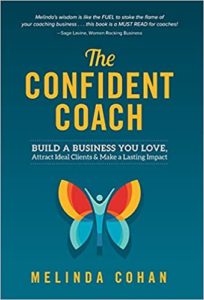
When we swing too far into that masculine, that’s when it’s success at any cost convince, manipulate, pressure, pushy and all that icky stuff. When we bring the feminine into it, that’s when we can bring in the nurturing, creative, relationship building, supporting and intuitive. Most people because they don’t like that old-school approach they swing too far.
They’re like, “I don’t need that. I need this.” It’s all lovey-dovey and happy and they feel good about it but they’re not growing their list, not getting clients and not seeing results. It’s not predictable and dependable. People spend too much time swinging from one to the other. It’s coming into the middle. If we had that Venn diagram, it’s that center where that fierce flow where you can have sexy systems, creativity and intuition, co-exist at the same time and that’s this new way of business. It’s not even a new way. People don’t look at it that way.
I have briefly touched on it but I have a feeling I’m going to pull that out and make a whole other book about it but that is when entrepreneurs can see business in a new way, we can leverage the greatness of the masculine and feminine. We can bring all of that together. We bring all of ourselves to our business to serve our clients and do our work in the world.
I want our community to find you. We can find you on all social platforms but it isn’t under your name. Is it under your coaching? How do we find you on social?
There are a number of ways that you can find me under my name Melinda Cohan. I’m there. The Coaching Lifestyle is a group where I’ve got an entire audience that we come together and talk about all things related to the business of coaching. The book is a great way to do that. We can get people to get the book in their hands. When they get the book in their hands, they also get other resources, supplementary and complementary resources that go with that some of the resources.
It’s because the book is not, “Here are all the strategies you should know.” I love learning and doing right at the same time. In the book, it’s learning the strategies, best practices, step-by-step and then also the resources that you need to implement it. You’ll get those resources. There’s a whole toolkit and everything that people can access.
We’ll make sure we get you that link because when you buy the book through right on her site and we’ll get bonuses because we love bonuses and prizes.
For a small timeframe, you can get the book for free but when you go to ConfidentCoachBook.com/Profit, you can get the book and the resources and everything.
Profit is my favorite word. I appreciate you being here, your time, genius and simplifying our industry. I want to make sure that you go find Melinda. Until the next episode. Melinda, thank you for who you are and what you do in the world. I appreciate you.
Thank you so much.
Important Links
About Melinda Cohan
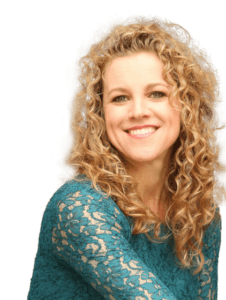 Melinda Cohan is CEO of The Coaches Console, a software, training, and coaching company that has helped thousands of coaches create profitable and sustainable businesses.
Melinda Cohan is CEO of The Coaches Console, a software, training, and coaching company that has helped thousands of coaches create profitable and sustainable businesses.
